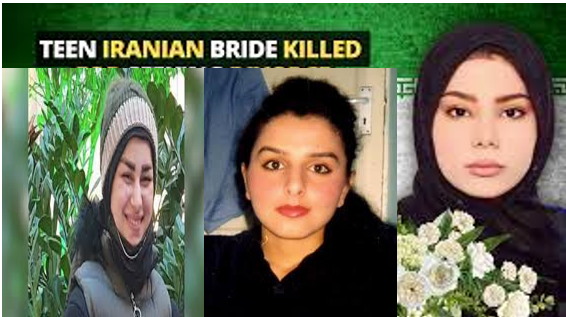
On Human Rights Day, the spotlight turns to the dire situation in Iran, where systematic violations of women’s rights continue unabated.
Iran is witnessing a deeply troubling trend of honor killings and femicide, with such acts becoming alarmingly frequent.
Media reports regularly detail femicides, yet the Iranian regime, led by the mullahs, shrouds the issue in secrecy, withholding crucial statistics on violence against women. Critical data from forensic and welfare organizations are suppressed, leaving the true extent of these atrocities largely hidden.
Despite the lack of transparency, available reports and statistics suggest a disturbing reality. The Etemad daily noted a dramatic rise in femicide frequency, with the rate escalating to one murder every other day in parts of 2023. The Hengaw website reported 52 femicides from March to September 2023, with Tehran witnessing 29% of these cases.
The NCRI Women’s Committee, however, has documented 132 cases of honor killings and femicides since January 2023, surpassing governmental and non-governmental sources. This includes 85 femicides and 47 honor killings, painting a grim picture of the situation in Iran.

The state-run Sharq newspaper revealed that between June 2021 and June 2023, at least 165 women were killed by male relatives, with Tehran accounting for 41 cases.
Shockingly, Iran accounts for approximately 10% of the world’s honor killings. Misogynistic laws under the mullahs’ regime not only sanction but contribute to the rise in such killings. Key legal provisions, like Articles 1105, 1108, and 1114 of the civil code, severely restrict women’s rights, often trapping them in abusive situations. For instance, a woman’s testimony is considered half that of a man’s, and she must prove life-threatening conditions to file for divorce.
Government statistics show that 20% of all murders in Iran are honor killings, with a significant rise in the western provinces. Sociologist Mohammad Reza Mahboubfar warns that the situation could worsen, with honor killings potentially increasing from 450 to 2736 cases annually.
Despite the severity of these crimes, honor killings and femicides are not specifically criminalized under Iranian law. The legal framework is insufficient, often resulting in lenient punishments for perpetrators.

The husband of Mona Heydari, a 17-year-old victim, received only an eight-year sentence for her beheading, a penalty less severe than that for removing a headscarf.
On Human Rights Day, it is vital to honor the courage of Iranian women and girls who face systematic violence and oppression. Their fight for “Women, Resistance, Freedom” seeks to dismantle the misogynistic clerical regime, hoping to secure a future where their rights are respected and upheld. This day reminds us of the urgent need for global attention and action against the systematic violation of women’s rights in Iran.

MEK Iran (follow us on Twitter and Facebook), Maryam Rajavi’s on her site, Twitter & Facebook, NCRI (Twitter & Facebook), and People’s Mojahedin Organization of Iran – MEK IRAN – YouTu
